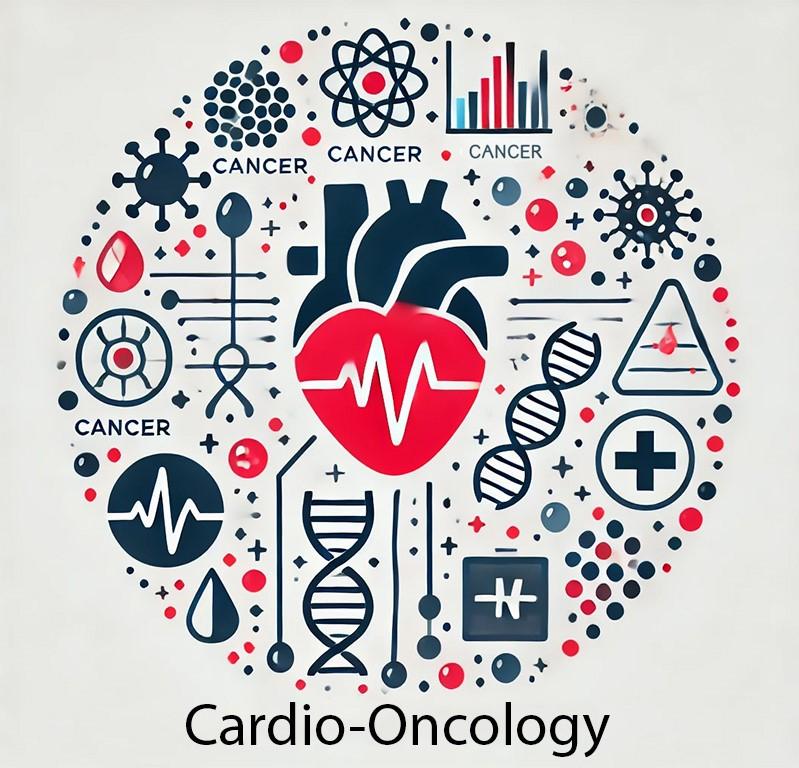
Cancer survival rates have improved dramatically over the past few decades, but this success story has uncovered another critical healthcare challenge: the cardiovascular complications of cancer treatments. Now, cancer survivors are increasingly dying from cardiovascular problems, either related to cancer therapies or due to the increasingly known shared risk factors between cardiovascular diseases and cancer. This intersection of cardiology and oncology has given birth to a vital new medical subspecialty – cardio-oncology. However, despite its crucial importance, this field remains severely underrepresented in healthcare systems worldwide.
Cardio-oncology: global need and current state of affairs
Cardio-oncology focuses on preventing, monitoring, and treating heart problems in cancer patients. Cancer treatments, while lifesaving, can be harsh on the heart. Chemotherapy drugs like anthracyclines and trastuzumab can weaken heart muscles, while radiation therapy to the chest can damage heart tissues and blood vessels. These effects may surface during treatment or emerge years later, creating a complex healthcare challenge that requires specialized expertise.
The necessity for cardio-oncology services is growing exponentially. With cancer becoming more prevalent globally and survival rates improving, we’re seeing an increasing population of cancer survivors who need long-term cardiac care. According to the World Health Organization, over 35 million new cancer cases are predicted in 2050, a 77% increase from the estimated 20 million cases in 2022. This surge will particularly be pronounced in low- and middle-income countries, where cardiovascular complications from cancer and cancer treatments often go unmonitored and/or untreated.
The reality is sobering. Even in developed nations, cardio-oncology programs are primarily concentrated in major academic medical centers, leaving significant gaps in coverage. The situation is far more dire in developing countries, where such specialized care is often non-existent. This is also concerning in regions like Latin America where several countries do have cardio-oncology groups, but overall, also because a regional approach to address the need for cardio-oncology is still lacking, this is far from sufficient.
Most developing regions face critical shortages in trained cardio-oncology specialists, dedicated clinics, and necessary monitoring equipment. They also lack standardized protocols for cardiac surveillance during cancer treatment and prevention strategies for high-risk patients. The infrastructure for coordinated care between cardiology and oncology departments is often minimal or non-existent.
The global deficiency in cardio-oncology care stems from multiple factors, including limited awareness among healthcare providers and policymakers about the specialty’s importance, insufficient training programs and educational resources, and financial constraints in healthcare systems. Additionally, the absence of standardized guidelines adapted for resource-limited settings and inadequate infrastructure for coordinated care between cardiology and oncology departments (not just in developing countries) further compounds these challenges.
The Way Forward
Addressing this global healthcare gap requires a multi-faceted approach that combines immediate actions with long-term solutions.
In the short term, incorporating basic cardio-oncology training into existing cardiology and oncology programs, developing telemedicine networks to connect remote areas with specialized centers, and creating simplified protocols for resource-limited settings are essential steps.
Looking ahead, establishing more training programs for cardio-oncology specialists, investing in research to better understand regional needs and challenges, and building international collaborations for knowledge sharing, such as through the International Cardio-Oncology Society (ICOS), will be crucial. Implementing cost-effective screening and monitoring strategies must also be a priority.
Conclusion
The field of cardio-oncology represents a critical yet underdeveloped area in global healthcare. As cancer treatments continue to advance and survival rates improve, the need for specialized cardiac care in cancer patients will only grow. Healthcare systems worldwide must recognize this emerging challenge and take steps to develop robust cardio-oncology programs. The investment in this field today will greatly improve patient outcomes and reduce healthcare costs tomorrow. While the path to establishing comprehensive global cardio-oncology care may seem daunting, it’s a necessary journey that the medical and public health community must undertake. The future of cancer survivorship depends not just on treating the cancer itself, but also on protecting the heart health of cancer patients and survivors worldwide.
Very interesting and well detailed
The article highlights the growing need for specialized care in cardiology and oncology due to the increasing side effects of cancer treatments. It emphasizes the need for greater focus and funding in cardio-oncology due to the rising incidence of cancer worldwide. The article highlights gaps in care, particularly in low- and middle-income countries, due to a shortage of qualified specialists and a poorly coordinated healthcare infrastructure. To improve the quality of life for cancer survivors and long-term patient outcomes, healthcare systems must recognize the importance of cardio-oncology.
Interesting! I did not see this coming!
Thank you! Yes, it is quite striking, isn’t it? The great leap and success in cancer treatment has revealed a whole new healthcare challenge that we have to face or otherwise we will just forfeit our progress with cancer treatment. But again, it is a great example of how advances in one area of medicine can unveil new challenges – and OPPORTUNITIES – in another.